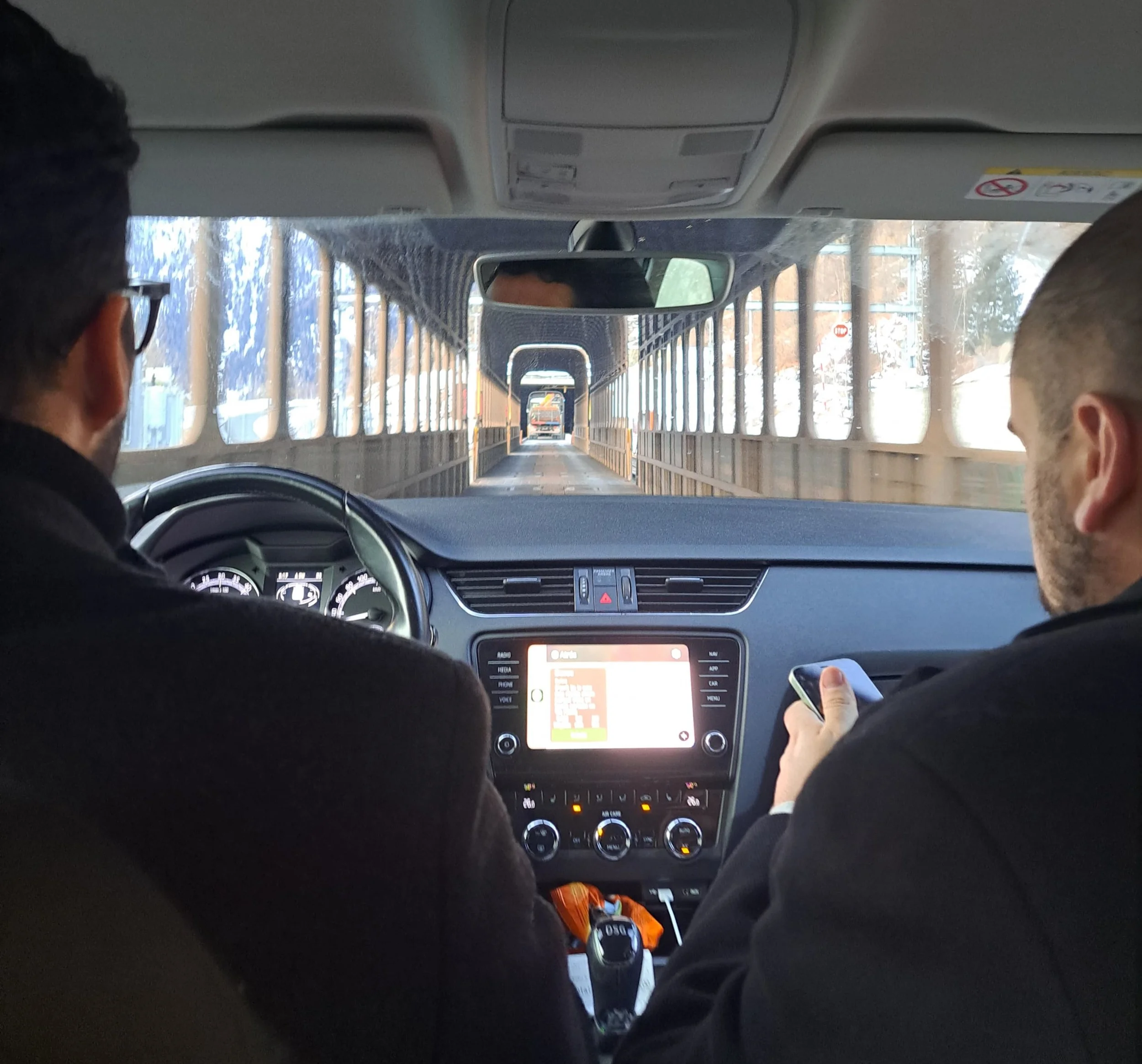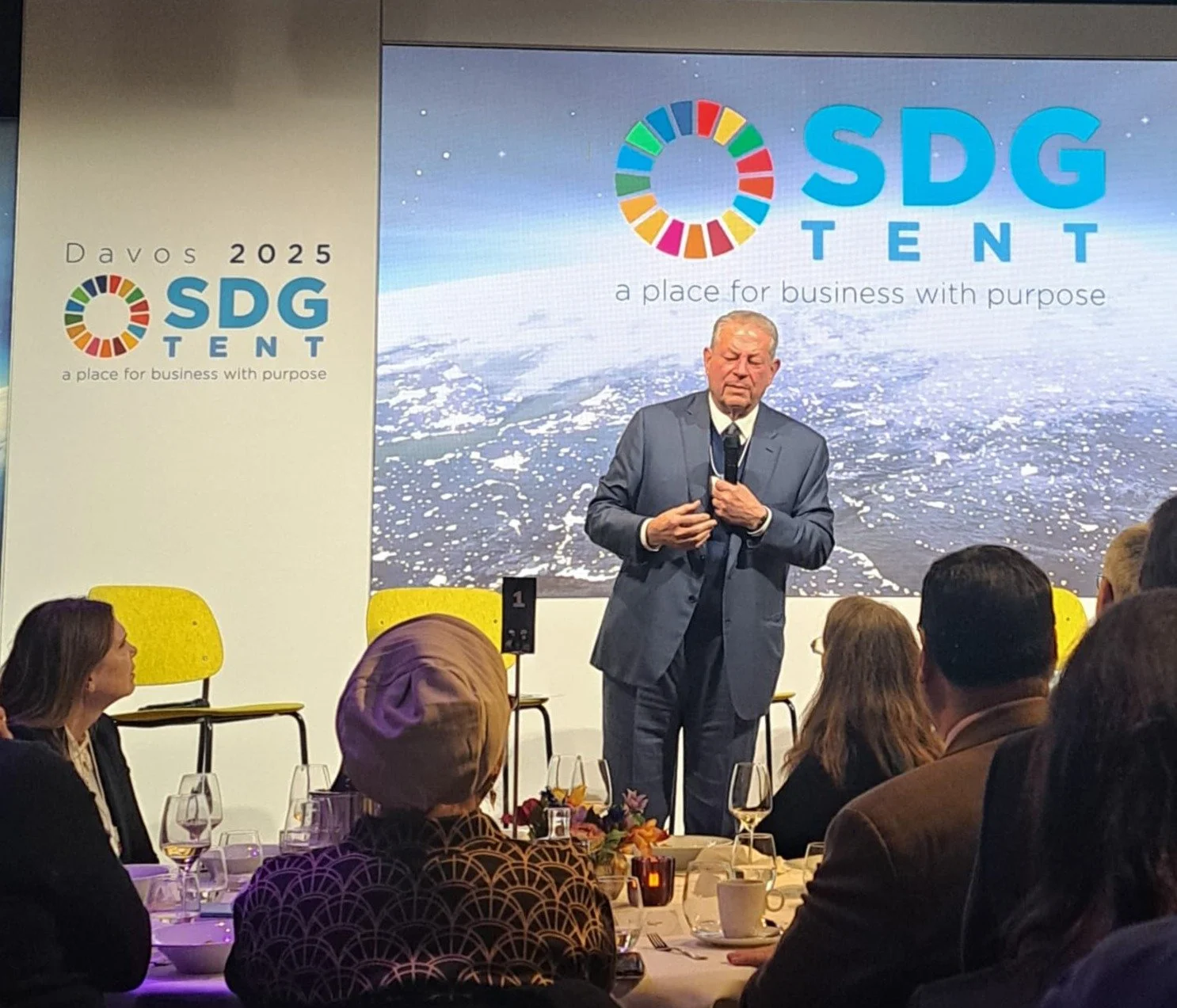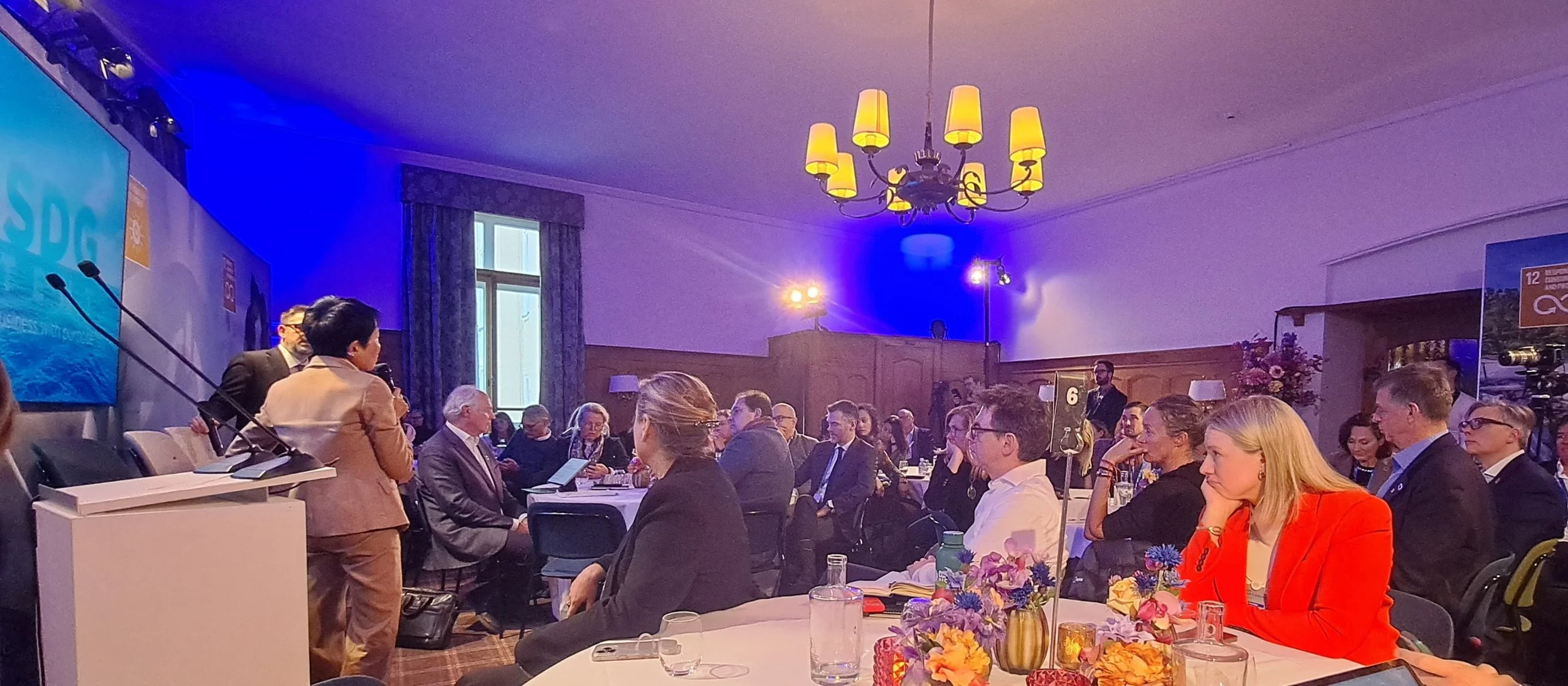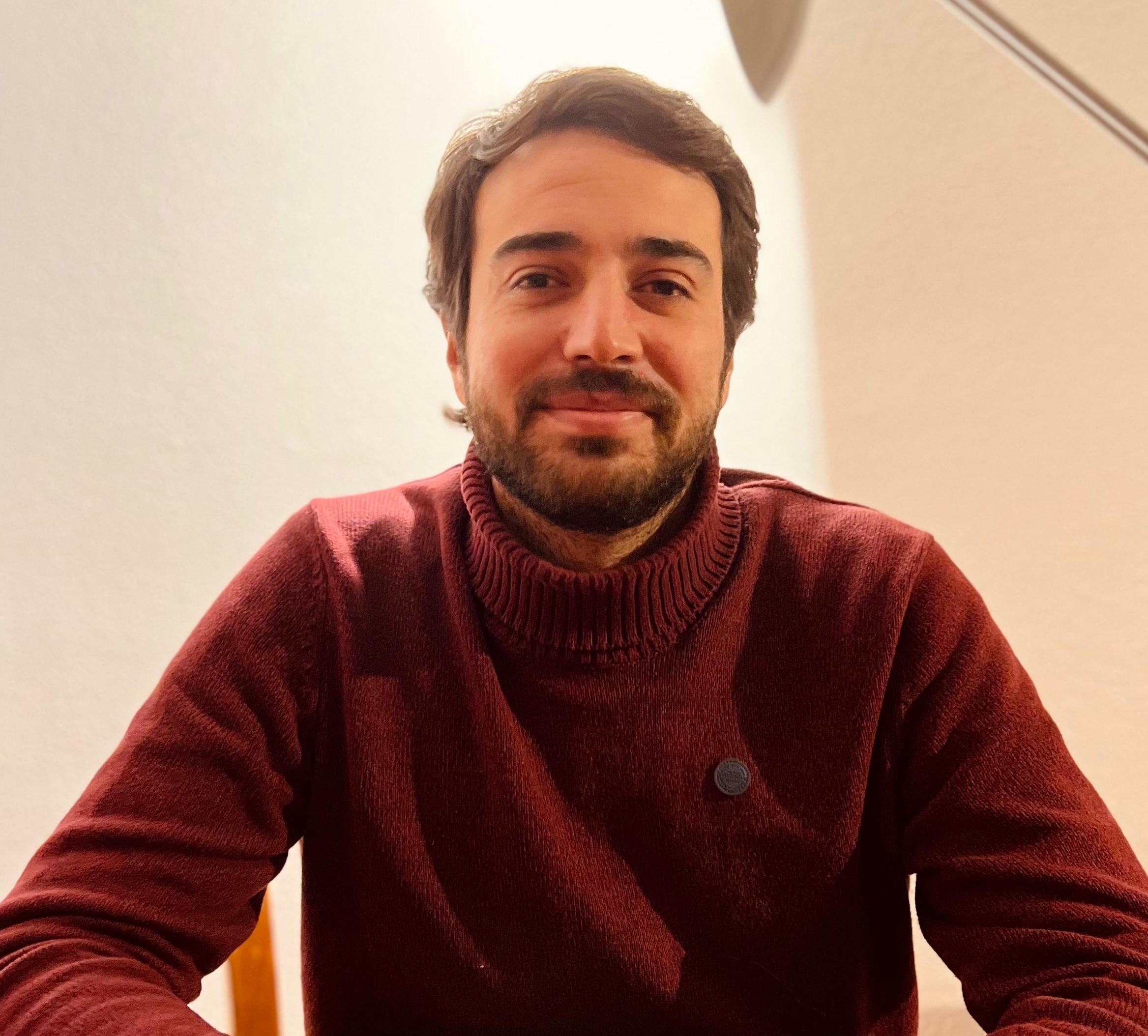A Humble Journey to Davos: Reflections on Purpose, AI, and the Power of Small Steps
When I received the invitation to attend the World Economic Forum in Davos, my first reaction was disbelief. Growing up in Colombia, a country where opportunities often feel reserved for the privileged few, I never imagined I’d witness global leaders debating humanity’s future in person. Yet there I was, a boy from Bogotá, raised in a world of contrasts between resilience and scarcity, standing in a Swiss mountain town, humbled and grateful for the chance to listen, learn, and add my small voice to the chorus of change.
Sebastian driving from a village near Davos to WEF
The Journey was a Metaphor for Access
Davos felt like a fortress of exclusivity. Unable to stay in town - costs skyrocket during this week - we lodged in a village 50 minutes away. To get there, we drove our car onto a train that carried us through a mountain tunnel, a metaphor for the barriers many face in reaching spaces of influence. The surreal experience reminded me that access is not just physical. It’s about who gets to sit at the table where decisions are made. I felt immense gratitude for the privilege of proximity, but also a responsibility.
Al Gore speaking at the SDG tent
Profit and Purpose as a New Narrative
The opening dinner at the SDG Tent themed The New Nature of Business, set the tone. Listening to Al Gore speak about climate urgency, I was struck by a recurring theme: profit and purpose are not enemies. One CEO at our table shared how her company’s sustainability pivot increased its revenue by 30%, proof that ethical choices can drive growth. This resonated deeply with my work in Colombia, where social enterprises often thrive by aligning community impact with financial viability. The lesson? Purpose isn’t a “nice-to-have”: it’s the backbone of resilient economies.
Reimagining Humanity’s Relationship with Technology
At the Future House, a unique space where global leaders discuss the most pressing issues facing the future of technology, the panellists discussed technology’s impact on youth. A neuroscientist warned that constant digital stimulation is rewiring adolescent brains, eroding attention spans and empathy. Yet optimism emerged too as AI tools can democratise education, connecting rural Colombian students to global classrooms. The challenge? To design technology that serves human dignity, not exploits it. I left thinking, we must ask not just what AI can do, but what it should do.
Accountants are Going to Save the World
One surprise was Emmanuel Faber’s talk on sustainable accounting. As Chair of the ISSB, he’s pushing to integrate environmental costs into financial reports. Imagine a world where a company’s deforestation or pollution appears as a liability on its balance sheet! This isn’t just technical, it’s ethical. For someone from a resource rich yet inequality plagued nation like Colombia, this transparency could hold corporations accountable for extractive practices.
Ray Dalio, AI, and the Art of Thinking
Ray Dalio’s AI insights were pragmatic. “Leadership can’t be replaced by AI,” he argued, “but it can be amplified.” He stressed coding ethical principles into algorithms, like embedding Colombia’s communal parcero spirit (collaboration over competition) into systems. Yet he warned, AI built on biased or incomplete data will fail. His mantra, “Pain + Reflection = Progress,” felt universal.
The SDG Tent and A Call to Action
At the SDG Tent, stark truths emerged: $800 billion lost annually to nature-related disasters (10x more than a decade ago), while lobbying often drowns out climate policy. Yet Al Gore’s closing words galvanized me: “Action breeds hope, not the other way around.”
The SDG Tent
“So Poor They Only Had Money”
A phrase from Davos stuck with me: “People were so poor, they only had money.” It crystallises the crisis of our age, material wealth without purpose, community, or ecological stewardship. Colombia, with its biodiversity and cultural richness, understands this deeply. Our poverty isn’t just economic; it’s a disconnect from what sustains us.
Final Reflections of a Colombian’s Two Cents
Davos left me with more questions than answers, but that’s progress. I realised my voice matters not despite my background, but because of it. When a tech executive asked, “How do we scale solutions sustainably?” I shared how in Colombian we do massive education via WhatsApp to prevent teenage pregnancies, and now we are having a conversation with a CEO for massive education for SDG for his workforce.
Change isn’t about grand gestures. It’s about stitching humility into innovation, letting diverse voices shape AI, and redefining success as more than profit. As I boarded the train back down the mountain, I felt renewed resolve that the future belongs to those who build bridges. Bridges between nations, disciplines, and profit and purpose, but more importantly, bridges between inaction and action. And sometimes, those bridges start with a car on a train, and a Colombian who dares to add his two cents. Build yourself with a tremendous, audacious sense of agency!




